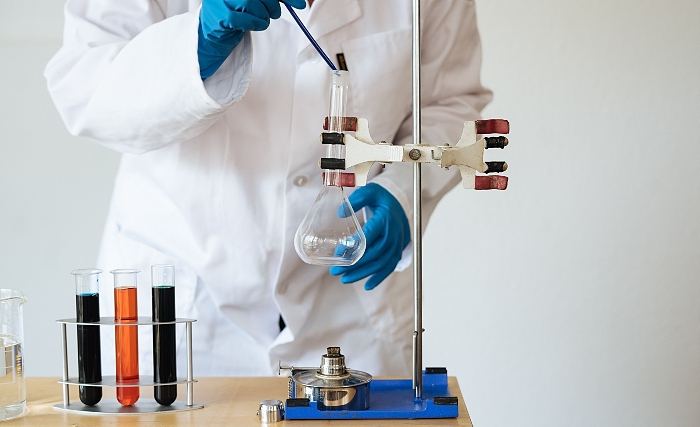
Science is one of the few subjects in school that provides students with elements of practical learning.
Whether that is through handling experiments, developing an understanding of safety principles or gathering data and results, the importance of this subject should not be lost on pupils.
For this reason, science classrooms must be kept as safe as possible to protect school pupils from the hazards that could occur in a science practical.
Here are our top 5 tips for running a safe classroom practical.
1. Set high safety expectations
Before any class begins with a science practical, each child must understand the expectations of safety and responsibility when dealing with potentially harmful substances and equipment.
One of the best ways to enforce these expectations is through the use of mandatory signage around the room which gives clear instructions of what the class must do during the lesson.
Ensure that mandatory signs are adhered to at all times and the children will be protected from the potential dangers of a science practical.
2. Demonstrate the experiment first
Showing the class how to successfully perform an experiment can help to eradicate any mistakes that could cause danger in the classroom.
Remember, you are responsible for the safety of the children, so take your time and explain what they need to do properly.
Educate them on the different things used in the experiment, for example, distilled water (you can buy distilled water here) and the acids or chemicals that they need to work with.
Then, walk them through the process by conducting the experiment yourself.
3. Have support from a technician
Befriending a school technician can do wonders for your science experiments.
These members of staff will be far more adept at preparing the equipment required and handling the substances needed for your experiment.
You should never be afraid to ask technicians for support.
It is their job to support school experiments and they will be more than happy to help.
4. Remain aware throughout
Remain alert throughout the entire experiment as the potential for accidents to occur will always be present – especially with science equipment.
Ensure that you are keeping a keen eye on the class and be prepared to step in if any trouble arises.
One other reason the teacher must maintain concentration throughout is for the benefit of the students.
If the teacher is not concentrating then this could reflect back to the children and they will then think that loss of concentration is okay too.
5. Be prepared for emergencies
The scope for emergencies that could occur with each science experiment can be huge and you should have emergency supplies and procedures in place for every scenario.
Before your class arrives, perform a risk assessment and acquire all necessary equipment to cope with potential emergencies.
(Image – pexels-rfstudio-3825368)


















Recent Comments